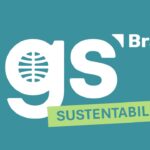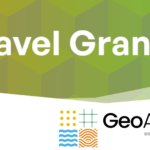 Welcome to the first in a series of Q&As with young IGS member engineers at the start of their geosynthetics careers.
Welcome to the first in a series of Q&As with young IGS member engineers at the start of their geosynthetics careers.
Here, Tondani Nevhutalu shares her path to becoming a civil engineer.
Hello Tondani, please tell us a bit about yourself.
Hi! I’m 24 and work for Jones & Wagener Engineering and Environmental Consultants as a civil engineer in the waste department. The head office is located in Rivonia, Gauteng, South Africa. Currently, I am one of the resident engineers on a construction project in Lephalale, Limpopo, South Africa.
The project is the Integrated Excess Coal Stock Yard (IECSY) Phase 3 Coal Stockpile Cells, Pollution Control Dams (PCD) and the Associated Infrastructure at Medupi Power Station. My role is to supervise and ensure the project is completed as per construction specifications, approved construction drawings and construction quality specifications.
Tell us a bit about your journey to your current role.
In high school I gravitated towards the subject we called EGD (Engineering Graphic Design). This is where I first learnt to understand engineering and architectural drawings. We were also introduced to AutoCAD software which was fascinating.
Upon applying to university, I initially thought I was meant to be an architecture student as I knew I had an eye for design. This was until they asked for an ‘art portfolio’ as part of the application. At the time, I was not artistic at all. I couldn’t have presented anything that would have helped me achieve a spot into the class! I had to quickly find an alternative and this is when I researched more into civil engineering.
What I loved most in the profession was the use of design and creativity to better people’s livelihoods. Having been raised in an area where infrastructure and basic services were scarce, I could immediately see how becoming a civil engineer could benefit the community I lived in.
I was awarded a bursary by Jones & Wagener to study for a BSc in Civil Engineering at the University of Cape Town. It was one of the toughest yet joyful experiences of my life. I failed in my first year and had to repeat some modules, and in the process I lost my bursary as well. I was many kilometres away from home and had to figure out a way to keep motivated.
This is when I moved to what they called Aspect Programme (an extended degree for engineering students). Through this I was able to focus on my mathematics and physics courses and this built the foundation to a better understanding of my civil engineering courses. As my marks improved, I was able to earn back the Jones & Wagener bursary for the remainder of my degree.
Through all the challenges, I never once thought I couldn’t finish the degree and what kept me going was the support from family and friends. I graduated from the University of Cape Town with a BSc in Civil Engineering (with Honours) in 2018.
Can you tell me a bit about your company and why you chose to work there?
Jones & Wagener is a medium-sized specialist firm of consulting engineers and scientists based in South Africa. It designs, develops and implements innovative, practical and cost-effective solutions that are environmentally supportive.
Over the years, the company has grown to specialize in structural engineering, geotechnical engineering, industrial waste and mining waste (tailings) management, mining infrastructure, environmental engineering, hydrological engineering, environmental management, and environmental sciences.
I would say the company chose me first. At first I was relieved to be a bursary student and have a fully-funded opportunity to study the degree I desired at one of the best universities in Africa. It was through the work experience I had with the company, that I learnt more about its vision and missions. J&W is dedicated to promoting personal technical development and values inclusivity and creativity. Many of the professionals in the company are acknowledged leaders in their specialist fields both nationally and internationally. This provides a great learning experience for a young engineer like myself.
So why geosynthetics and your chosen focus?
Civil engineering focuses on improving lives by providing infrastructure that is to exist for many years to come. It also allows for innovation and creativity.
Growing up in South Africa, it’s impossible to be blind to the issues faced by the majority of the population who fall below the poverty line. Lack of basic services and infrastructure makes it difficult for children to better their lives and in turn, better the economy. Providing for infrastructure such as roads, well-managed waste disposal facilities, and recycling centres, can help build communities by providing access to study and work opportunities and ensuring a clean environment that allows for cultivation.
Working as a civil engineer in the waste department at Jones & Wagener, I am exposed to the design and application of geosynthetics on waste disposal and ash dump facilities. Geosynthetics serve as a barrier for contaminants from the environment. This ensures that our designs prioritise environmental protection and community livelihoods, which is what I am passionate about.
There was a time where I didn’t know that landfill sites were engineered and I thought all they had to do was dump the waste. The knowledge I now have on waste disposal facility designs, and the different solutions we explore to ensure environmental protection and sustainability, is what has kept me intrigued by the world of geosynthetics.
What was your first day at work like?
Having done some work experience at the company, I was quite familiar with a few people by the time I had my first day. This didn’t take away from the nerves. I remember not being able to fall asleep the night before, because I kept running through what my day would be like. My outfit was already ironed and laid out on the chair.
Through the nerves, there was excitement. I was very excited to learn and having just graduated, I was confident that I knew quite a lot and I would just be required to apply the knowledge.
Everyone I met was friendly and very willing to assist with all I needed. I was first introduced to everyone in the office. I definitely had forgotten half the names by the end of the tour. The first day rushed by quickly because you spend quite a number of hours in inductions and setting up your company profile. It felt overwhelming as there was a lot I had to learn and memorize. I had to remember to write down everything, even though I was hopeful it would become routine. Overall, I had a good day.
What are you looking forward to most in your career?
I am looking forward to continuous learning and registering for my Professional Engineer (PrEng) which is a qualification you receive from the Engineering Council of South Africa). The plan is to see my involvement in a project grow to have significant impact. I am excited to explore and further my knowledge in the application of geosynthetics and possibly contribute to the growing research in the industry.
What are your long term ambitions and goals?
The reason I ended up in civil engineering is because I have always wanted to be in a position to provide for infrastructure in areas where there is a lack of basic services. My long term goals include owning a company that will be in a position to uplift poorer communities around Africa by providing for infrastructure that assists government in the provision of basic services.
I also have a strong interest in supporting, uplifting and inspiring young female aspiring engineers. I plan to be involved in a mentorship programme that targets potential engineering students from high schools in less affluent communities, connecting them to bursary opportunities, mentors and a larger network of professionals that can expose them to work experience opportunities.
Do you have any advice for anyone considering becoming an engineer or applying for their first job?
Do your research. There are many different types of engineering degrees you can pursue. Within civil engineering, there are several branches that you can go into. It’s important that you take time to understand what type of engineer you want to be.
While in university, take some time to socialize and network. The relationships you create in university will support you throughout your studies as well as in the working environment. You also get more opportunities by meeting several people and having the keenness to learn about what other people outside of your degree are studying. Additionally, when applying for your first job or for work experience during your studies, the network of people you met during your studies can assist greatly by connecting you to several opportunities.
Tell us about your work experience.
As a requirement for attaining my degree, I had to complete 10 weeks of work experience. As a requirement for my bursary, I had to complete six weeks of work experience at the company for each year I was funded.
Through work experience I was able to further my development by applying the theory to practical solutions to engineering problems.
Growing up, I was not surrounded by engineers. Through work experience, I was exposed to skilled professionals in the engineering industry. This is where I had the opportunity to learn further from peoples’ teachings and visit construction sites to see the problems and/or solutions first hand.
Work experience was also an opportunity to interact with people in the company and form relationships which contributed to a smooth transition from university to the work environment.
I would highly recommend applying for work experience during your studies. It’s very important to build your CV as soon as possible. This will be an advantage you have when you apply for your first job. Work experience also gives you the opportunity to gauge if the degree you’re studying will propel you to a career you enjoy. Studying in university and being in the work environment is very different. It’s always an advantage if you can have foresight into the work environment before you graduate.
What do you wish you knew before starting your first job?
Don’t pressure yourself to know everything when you start working. Be open to learning from those with more experience than you.
Geosynthetics is not yet a widely taught field in university undergraduate curriculums. Most of the knowledge I have acquired has been through work experience. It has been a steep learning curve over the past two years. I wish geosynthetics were explored more in the curriculum at university. It is rapidly becoming an integral addition to engineering solutions across the world.
How has membership of the IGS helped your progress?
I joined the Young Members Committee (YMC) this year but I have been a part of the IGS since 2019. When I first started working, I joined GIGSA (the South African chapter). Through this membership, I have been able to receive updates on the news in the geosynthetics industry. I also have been able to access online webinars such as the Electrical Leak Location Webinar, where experts in the field have shared knowledge that informs me of important design features during the design stages of a waste disposal facility that facilitate electrical leak surveys.
I attended the GIGSA CQA training week in June 2019. As I took the course early into my career, it provided introductory knowledge into the world of geosynthetics. Through the week, I learnt from experts in the field on the types of geosynthetics, uses, testing, manufacturing and quality assurance procedures required. The learnings from the course is highly useful when designing for waste disposal facilities
Being a part of IGS, I have been receiving newsletters that have kept me informed on new research and activities all across the world and from the different chapters. As a new engineer in the field, it helps a great deal to read about the world-known experts and to attend webinars on their experiences or research.
I look forward to more engagement with the IGS YMC as I am keen to be involved in an initiative that promotes engagement between young members in the industry.
Interested in finding out more about the IGS Young Members Committee? Visit here for details on events, activities and how to join.
Would you like to feature in our Engineers’ Q&A? Email your details to youngmembers@geosyntheticssociety.org.





